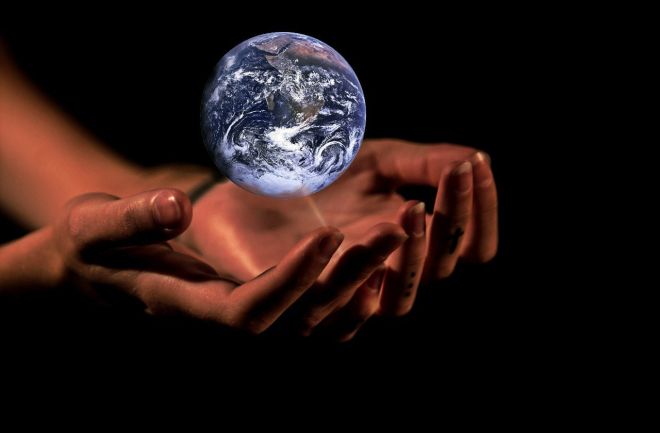Earth Democracy: Getting Ready for COP 29
Published on September, 19 2024
By Nancy Price
Co-Chair, Earth Democracy
September 2024
We’re getting ready for the upcoming COP 29, which will take place November 11-22, 2024 in Baku, Azerbaijan. The event will have delegates from various countries, as well as a wide range of civil society organizations — including human rights, peace and security, health, labor, youth, faith, gender groups and Indigenous peoples — along with representatives from fossil fuel corporations meeting under the banner, “In solidarity for a Green World.”
The first Conference of the Parties (COP) meeting was held in Berlin, Germany in March 1995. COP is the decision-making body of the United Nations Framework Convention on Climate Change (UNFCCC) and meets annually to discuss and agree on international climate policy: Assessing effects of the measures taken by parties (countries), reviewing the CO2 emission inventories submitted by parties, and assessing parties in achieving the convention's objective.
COP 29 is guided by the three points of the Framework for Action.
- First: Our fixed objective. We all have a moral duty to avoid overshooting the 1.5℃ temperature target above pre-industrial levels. But the window of opportunity is closing, and we must focus on the need to invest today to save tomorrow. Our fixed priority is delivering deep, rapid and sustained emission reductions now to keep temperatures under control and stay below 1.5℃, while leaving no one behind.
- Second: Enhance ambition and enable action. The COP 29 Presidency’s plan is based on two mutually reinforcing pillars: “enhance ambition” combines key elements to ensure all parties commit to ambitious national plans and transparency. The second pillar, “enable action,” reflects the critical role of finance, a key tool to turn ambition into action and reduce emissions, adapt to climate change and address loss and damage costs from climate impacts.
- Third: Have an inclusive process for inclusive outcomes. The COP 29 Presidency is listening to and engaging with a broad range of international stakeholders, working to ensure that everyone’s voices are heard, and perspectives are considered and included so that we deliver inclusive outcomes based on shared solutions. We are optimistic that together we can make real progress.
The Fossil Fuel Non-Proliferation Treaty
In 2015, the COP 21 Paris Agreement set a benchmark for global climate action through its temperature goal to stay below a 1.5℃ increase in temperature compared to pre-industrial levels. Despite fossil fuels being clearly identified as the main driver of the climate crisis, they are not mentioned in this landmark climate agreement.
Also in 2015, the Pacific Island Nations Vanuatu and Tuvalu called for a global treaty to address fossil fuels as the main contributors to global warming and climate change. That same year, the “Suva Declaration on Climate Change” was issued at the Pacific Islands Development Forum Third Annual Summit held in Suva, Fiji, that called for "a new global dialogue on the implementation of an international moratorium on the development and expansion of fossil fuel extracting industries.”
Later at COP 26 in Glasgow, 2021, the most contested decision was that fossil fuels were finally mentioned in the Glasgow Climate Pact with countries agreeing to “reduced coal use,” a phase-out of “inefficient” fossil fuel subsidies and increasing climate finance for developing countries.
Some real progress may be made under the “Framework for Action” at COP 29. How long can people and the planet wait when fossil fuel executives are “stakeholders” at the negotiating table? Can the developed countries make and honor pledges to climate finance and loss and damage funds?
After decades of climate negotiations, fossil fuels have finally been dragged to center stage, yet governments still approve new coal, oil and gas projects that threaten our ability to limit warming to 1.5℃. With a focus on reducing emissions, countries and companies claim to be climate leaders, but continue to open, approve and fund new fossil fuel projects.
To protect people from the threat fossil fuels pose to our climate, our health and our future, a growing block of 13 countries seek a negotiating mandate for a Fossil Fuel Non-Proliferation Treaty and are gathering signatures to letters and endorsements. More information will be posted on the Earth Democracy website page.
We need a concrete, binding plan to end the expansion of new coal, oil and gas projects, limit global temperature rise to 1.5℃ above pre-industrial levels, and manage a global Just Transition to safe, renewable, affordable energy for all. in which no worker, community or country is left behind. This Fossil Fuel Non-Proliferation Treaty also includes a Global Registry of Fossil Fuels to ensure transparency and accountability of production and reserves.



